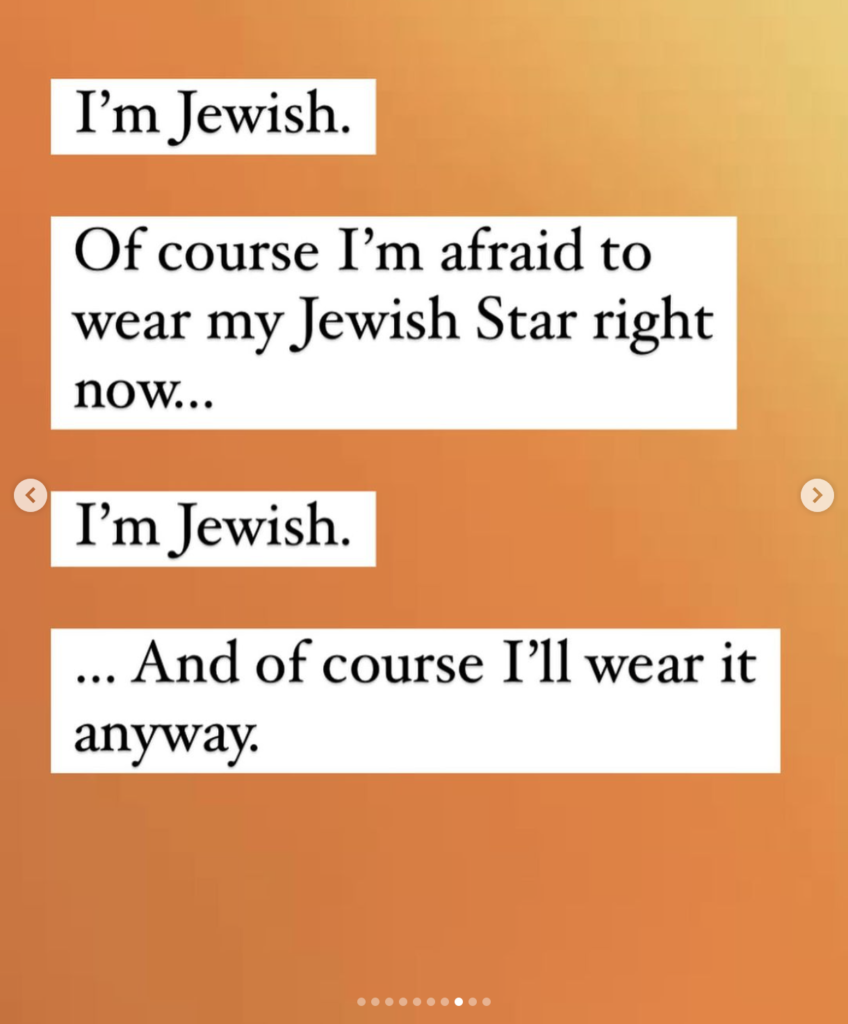Northwest Academy’s (NWA) largely liberal student body has historically been united on political issues such as Black Lives Matter, abortion and LGBTQ+ rights. However, the Israel-Hamas conflict, sparked by Hamas’ Oct. 7 attack, has created divisive tension between some students with differing opinion. NWA administration responded to the perceived strain with an email on Dec. 15, 2023, that acknowledged the need for open dialogue.
“Our students — like their contemporaries across the country and around the world — are searching for ways to sort through their feelings and values and growing political awareness,” read the email, signed by Chris Schuck, Joanne Kim and Rachael Torchia. “The war being waged between Israel and Hamas has hit our students particularly hard. We also want our students to grow in their capacity to take the measure of their words — words they speak in class, words they speak among friends, words they speak in public and words they convey via social media.”
The email encouraged students to be aware of where they express their opinions and how they might be received by their peers. Many students said that even though the school is trying to engender a safe space for open discussion of diverging viewpoints, they are still reluctant to share their thoughts because of the repercussions of a point of view that is perceived as unpopular. This reluctance in sharing opinions out of fear of being outcast is fed by the nearly homogenous mindset of the student body.
“I think that the sentiment among students is remarkably pro-Palestine,” said Cosmo Somerset, NWA senior. “It does not, for the most part, look favorably upon [those with pro-Israel views].”
While no student has reported feeling afraid to express a pro-Palestinian point of view at the school, there are some students with openly pro-Israel voices within the community who feel marginalized. In December, Dassi Gordon-Knight, a Jewish NWA senior and self-described Zionist, responded to a fellow student’s anti-Israel Instagram story, sparking an hour-long argument regarding the Israel-Hamas conflict. Gordon-Knight shared her view on the issue — that Hamas, not Israel — was responsible for the deaths of Palestinian citizens because of its use of “human shields.” The interaction was combative and only ended when Gordon-Knight’s family advised her to walk away.


On the other side of the conflict, Evan Gray-Williams, an NWA senior, often posts statements sympathetic to Palestinian civilians on social media. He says he is quite comfortable sharing his opinions, but understands why others are reluctant to broach the subject.
“The reason people don’t really discuss [the conflict] is because they don’t want to risk making students who feel strongly about [it] feel minoritized or discriminated against in any way,” said Gray-Williams.

While NWA students may avoid discussing the conflict openly at school they still post pro-Israel or pro-Palestine content on Instagram and other platforms. The situation has created divides in the student body. Jacob Lazarus, a Jewish and Zionist NWA senior, holds a firm stance on speaking out about the conflict.
“If I hold a conversation with someone and share my opinions and views, [and] if you judge me based [on] those [opinions], I shouldn’t be upset because those people shouldn’t be my friends anyway,” Lazarus said.
Another reason students are wary of sharing their opinions is due to a fear of being “canceled.” Celebrities, social media personalities and even everyday people have been publicly shunned for unpopular opinions and actions concerning the conflict, causing students to fear the same happening to them.
“Yes, [I am scared of getting canceled] sometimes,” said an anonymous student. “People have strong opinions and even if I attempt to be rational and accurately depict my opinions, [they] still might not have the experience with news [that] I have or be as informed as I am.”
Although students were able to articulate their fear, none were able to give an example of someone they personally knew who was “canceled.”
Other students cited a fear of losing friendships over the conflict, and one anonymous Jewish student said that this concern limited who they were comfortable discussing the topic with, exchanging their opinions only with those who agree with them.
“[I share my opinions] mostly with my Jewish friends, because a lot of Jews are involved in [the conflict] and my conversations with non-Jews got heated,” they said, citing fears of antisemitism.
Both antisemitic and Islamaphobic hate crimes rose steeply following the Oct. 7 attack by Hamas that sparked the conflict. The Anti-Defamation League reported a 388% increase in antisemitic events in the U.S., such as incidents of harassment, vandalism and assault. Similarly, the Council on American-Islamic Relations reported a 216% increase in complaints of Islamophobia or anti-Arab incidents.
Students are not required to divulge their religious beliefs or ethnicity during enrollment at NWA. However, while a percentage of students and staff identify as Jewish, there are no known Muslim students at the school.
*
The idea of creating safe spaces at NWA began after some students voiced their discomfort to school administration. These safe spaces would encourage students to share their opinions and help those with opposing viewpoints communicate respectfully.
“We are exploring hosting such a possibility, without having yet arrived at a conclusion,” read the Dec. 15 email. “Our goal and our work as a school is to equip our students with the skills necessary to engage in healthy, nuanced civic discourse around all manner of topics, including matters as sensitized as the ones currently before us.”
A dedicated “safe space” for discussion might look like an adult-supervised club or student group committed to constructive dialogue. This could allow students to express themselves, thoughtfully consider the opinions of others and engage in respectful conversations to better understand one another.
“I think [a safe space] could benefit students by encouraging us to talk to each other in [a less] confrontational way,” said an anonymous student. “I hope that it can be introduced [into the curriculum] or other academic spaces.”
Bobby Elliott, a high school Humanities teacher, believes that if a safe space were to be created, certain guidelines would have to be put in place so that students could feel comfortable participating.
“Setting expectations beforehand [and] being really sensitive to [the] language that’s being used [is important],” said Elliott. “If there’s a sense [that] things have gone sideways or personal, using that moment to take a pause and to investigate why that’s happened [can help us] avoid that kind of experience moving forward.”
There is also potential for such safe spaces to be built into the classroom setting. In his classes, Kyle Wiggins, Humanities Department Chair, makes room for his students to have dialectical conversations with their peers, with emphasis on coherent arguments, clear communication and grace.
“I think that empathy is so important in those situations,” said Wiggins. “[It’s necessary] to acknowledge that we will say things in the heat of a conversation that we don’t actually believe or that we don’t fully [believe] or that we want to revise later.”
Wiggins also thinks there should be spaces outside of the classroom to hold such discussions. Inge Hoogerhuis, Director of Admissions, mirrored Wiggins’ view, saying that it’s important to understand others’ opinions and their possible emotional ties to the situation.
“I think that you have to acknowledge the other point of view,” said Hoogerhuis, who is the daughter of Holocaust survivors. “You have to acknowledge the hurt and grief that is happening on both sides, not to say that one person’s grief is bigger than the other and to remember what we have in common.”
*
One significant reason for such radical disagreements among students is misinformation. News about the Israel-Hamas conflict is easily accessible on social media platforms like Instagram and X. Although outlets like Associated Press and National Public Radio are usually less biased than social media, many students don’t use them. However convenient it may be, using social media as a news source raises concerns of credibility. Much of the information spread on social media is flat out false.
Many students felt their peers’ fundamental understanding of the conflict, such as questioning who was attacked and by whom, is often founded on faulty facts gleaned from social media, where information can be easily distorted.
“A lot of people are uneducated on the situation that’s going on, and a lot of misinformation is being spread,” said Lazarus. “It’s hard to fight with someone who’s arguing things that aren’t true.”
Though they can be difficult, Hoogerhuis believes that respectful conversations about the topic are vital to ensuring that individuals feel safe in the school community.
“What each side has in common is they want to live in peace and in safety, and have their own agency,” Hoogerhuis said. “If we can keep that goal in mind, then maybe the conversation can move in a direction where we can actually learn from each other and see each side’s humanity.”
